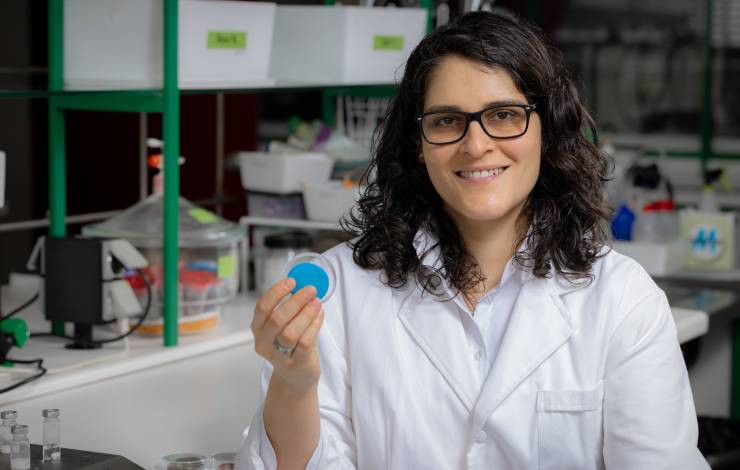24-02-2021

Liliana Tomé, Researcher at LAQV-REQUIMTE - Associated Laboratory for Green Chemistry at the NOVA School of Science and Technology is one of the four researchers recognized this year for the L'Oréal Portugal Medals of Honor for Women in Science. She is the sixth researcher at the School to receive this distinction.
In her research, in the area of the Environment, it is proposed to find more efficient answers to capture the anthropogenic gases, namely carbon dioxide (CO 2). Liliana Tomé proposes the development of a new set of more efficient materials CO2 removal, for example in power plant flue gas streams, and to prevent its release into the atmosphere.
“I am going to develop new membranes to capture CO 2, and the innovative character of these membranes consists of the combination of three components — ionic liquids, polymeric networks of ionic liquids, and porous organic materials — all of them based on ionic liquids”, she explains. Despite the name that many are unaware of, ionic liquids are nothing more than organic salts that have a low melting point (present in liquid state), with structures that can be recombined to produce new materials. Its physical, chemical and biological properties have led to its increasing application in the most diverse sectors, including the pharmaceutical, optics, electronics, and "green chemistry" industries.
Joana Carvalho, from the Champalimaud Foundation; Margarida Abrantes, from the Faculty of Medicine of the University of Coimbra; and Inês Fragata, from the Center for Ecology, Evolution and Environmental Changes (cE3c) - Faculty of Sciences of the University of Lisbon are the remaining researchers distinguished by this award, selected from more than 97 candidates, by a scientific jury chaired by Alexandre Quintanilha.
The L'Oréal Portugal Medals of Honor Program for Women in Science is an initiative of L'Oréal Portugal and is developed in partnership with the National Commission of UNESCO and the Foundation for Science and Technology (FCT), in order to "support and inspire early-stage scientists to pursue relevant projects in the area of health and the environment."